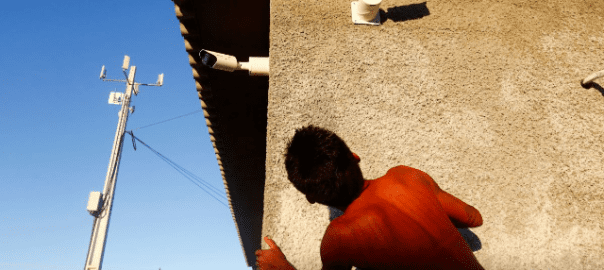By Diana Baptista | Data Journalist
|
Digital rights groups in Brazil protested against Smart Sampa, a government program seeking to install 20,000 security cameras with facial recognition technology in São Paulo by 2024. Using drones, the groups projected slogans like “No More Invasive Surveillance” and “Respect our Rights” on building walls. In a public letter, activists for the campaign Tire Meu Rosto da Sua Mira (Get My Face Out Of Your Sight) warned that the program could violate the rights to privacy, personal data protection, freedom to reunion, and freedom of speech by tracking people wherever they go. They also warned that facial recognition systems place Black people at risk of mass incarceration, as was the case in other Brazilian states that have been using the technology for years.
A child is seen near CCTV cameras near the Teles Pires river, in the Alta Floresta city, in the north of the state of Mato Grosso in the Amazon, Brazil July 16, 2017. REUTERS /Lunae Parracho |
|
For example, a 2019 study by the Center for Studies on Public Security and Citizenship found that 90% of 151 people arrested that year using facial recognition systems were Black. The municipality of São Paulo first released a notice for the supplying and maintenance of the Smart Sampa platform in August 2022, but a court suspended the process in November over concerns of racial discrimination. The suspension was overturned in May, when a bid for $1.9 million was also selected from an unidentified company, according to Folha de São Paulo. An Amazon delivery worker pulls a delivery cart full of packages during its annual Prime Day promotion in New York City, U.S., June 21, 2021. REUTERS/Brendan McDermid |



